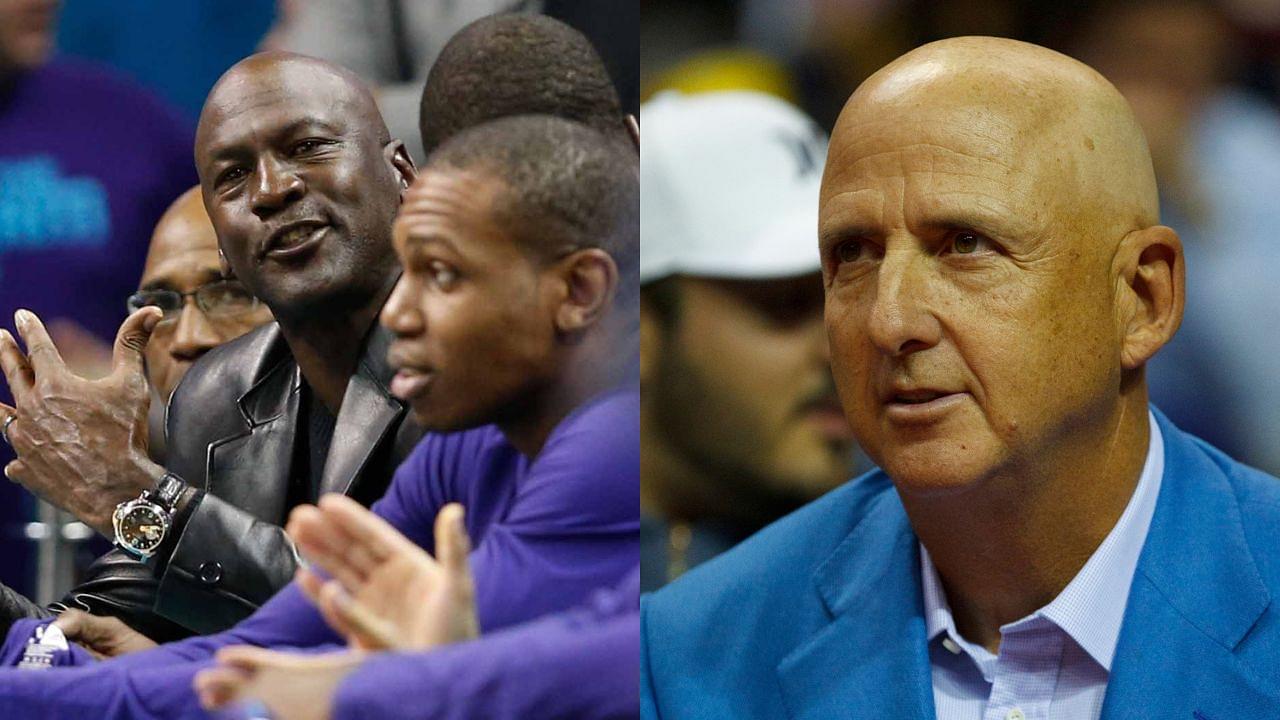Looking at Michael Jordan in 2023, it’s incredibly easy to say that he’s the most marketable athlete across North American sports. He has his own ‘Jordan Brand’ that generates tens of billions od dollars every year and understandably so. However, back when he was a skinny 6’6 junior coming out of the University of North Carolina, it was tough to judge whether or not he’d be a star considering the fact that the league was dominated by big-men at the helm of championship teams.
Advertisement
The way MJ played the game was certainly with a lot of flare. His allure as an explosive, high-flying guard was undeniable. Though, when superstars like Magic Johnson, Larry Bird, and Julius Erving were all being backed by one company (Converse), how would Jordan compete?
The answer to that question is far simpler than most think it is. He just did. He competed with their likeness head on as the face of Nike and eclipsed them almost instantaneously. Instead of the projected $4 million in revenue over the first year, Michael’s Jordans sold $162 million in revenue in that time period.
The Chicago Bulls GM didn’t believe in Michael Jordan’s marketability
Rod Thorn, the man who drafted Michael Jordan in the 1984 NBA Draft, once told David Falk, MJ’s agent, that he didn’t feel as though Jordan should be singled out in terms of marketing. He didn’t want to exclude him from the rest of the bunch.
Falk, during an interview with Slam Online in 2020, told readers exactly what Thorn said, despite having already drafted the UNC alum.
“We wanted to treat him like a tennis player. Tennis players and golfers typically use their own line of products,” said Falk about what his plans were for Michael. “Everybody thought that was a bad idea. Rod Thorn, who was the GM of the Bulls, said to me, ‘David, we love Michael, but if you try to treat him like a tennis player, you’re going to separate him out from the rest of the players.’”
Despite signing him to a $6.3 million contract that would stretch over the course of 7 years, Rod Thorn felt this way about him. Though, that contract was voided after the 4th year due to a contract extension, leading to MJ earning just over $2.7 million in his first 4 years in the league from his initial rookie contract.
David Falk was right about his client
David Falk knew what he had when he signed ‘His Airness’. He felt it in his heart of hearts that Jordan was going to be a special athlete and it was that intuition from the likes of Falk and even Sonny Vaccaro at Nike that led to MJ getting the confidence that he needed to excel in the NBA.
Nike, while they displayed an inordinate amount of trust in MJ, they did however come up with a slew of stipulations for his contract to be valid. He needed to either win Rookie of the Year, be named to an All-NBA or All-Star team, sell $4 million in shoes, or average 20+ points per game. He did all of this and more.








